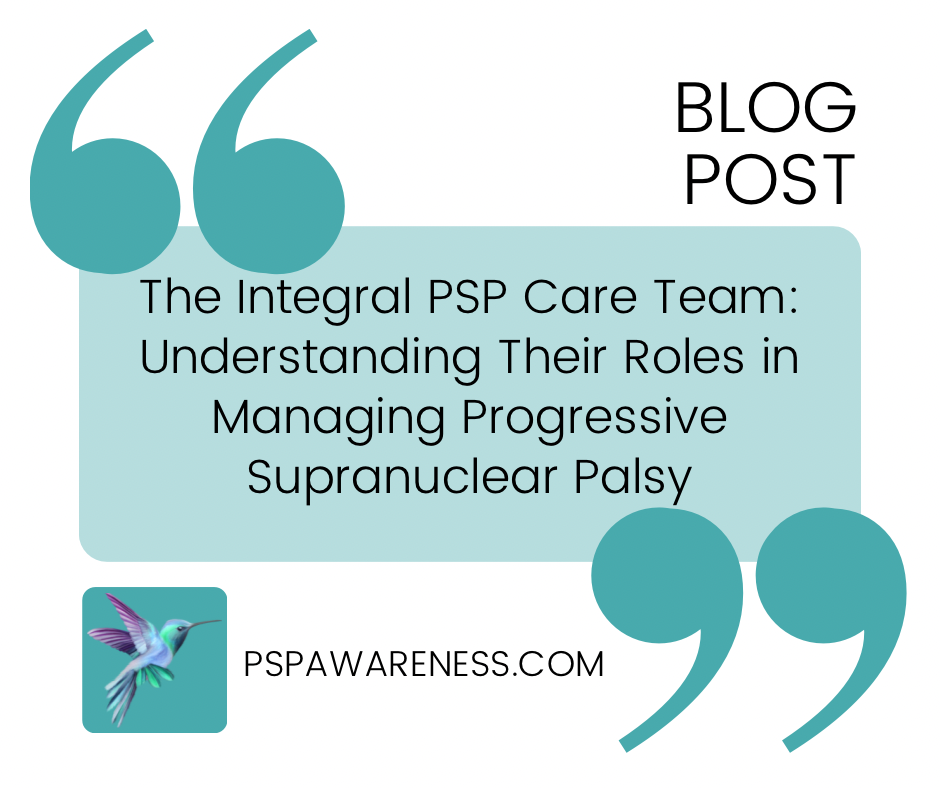Managing Progressive Supranuclear Palsy (PSP) involves a multidisciplinary team to address the broad range of symptoms and challenges the patient may face. The care team often includes:
1. Neurologist: Typically leads the care team. They diagnose, manage the treatment plan, and monitor the progression of the disease.
2. Geriatrician: If the patient is older, a geriatrician can be beneficial. They specialize in health care for elderly people and understand how aging affects the body and mind.
3. Physiotherapist: Helps to maintain mobility and balance. They can recommend exercises to improve strength, balance, and coordination.
4. Occupational Therapist: Provides strategies to maintain independence in daily living activities. They can also recommend home modifications or assistive devices for safety and ease.
5. Speech-Language Pathologist: Helps manage difficulties with speech and swallowing. They can provide techniques for safer eating and drinking and communication strategies.
6. Dietitian: Offers nutritional advice, particularly when swallowing becomes difficult. They can recommend diet modifications or supplements to maintain good nutrition.
7. Psychiatrist/Psychologist: Assists in managing mood swings, depression, and cognitive difficulties that can accompany PSP. They can provide therapy and recommend medications when necessary.
8. Ophthalmologist: Regular eye examinations can help manage visual symptoms associated with PSP, and they can suggest techniques to cope with any vision loss.
9. Social Worker: Helps the patient and their family navigate the health care system, provides information about resources, and offers emotional support.
10. Palliative Care Specialist: Works to manage symptoms, reduce discomfort, and improve the quality of life for patients and families. They can coordinate care and provide spiritual and psychological support.
11. Pharmacist: Manages medications for the treatment of symptoms, gives information about possible side effects, and ensures medications do not interact negatively.
12. Nurse/Nurse Practitioner: Provides general care, monitors the patient's condition, and educates the patient and family about the disease and its management. They often serve as a critical link between the patient and the rest of the care team.
Remember, communication among all members of the healthcare team is crucial for coordinating care and providing the best possible support for the individual with PSP.


 Donate
Donate




1 comment
Nice to c the various drugs for psp being worked on